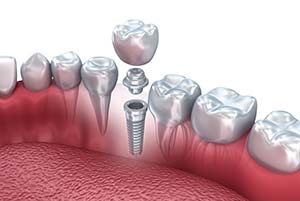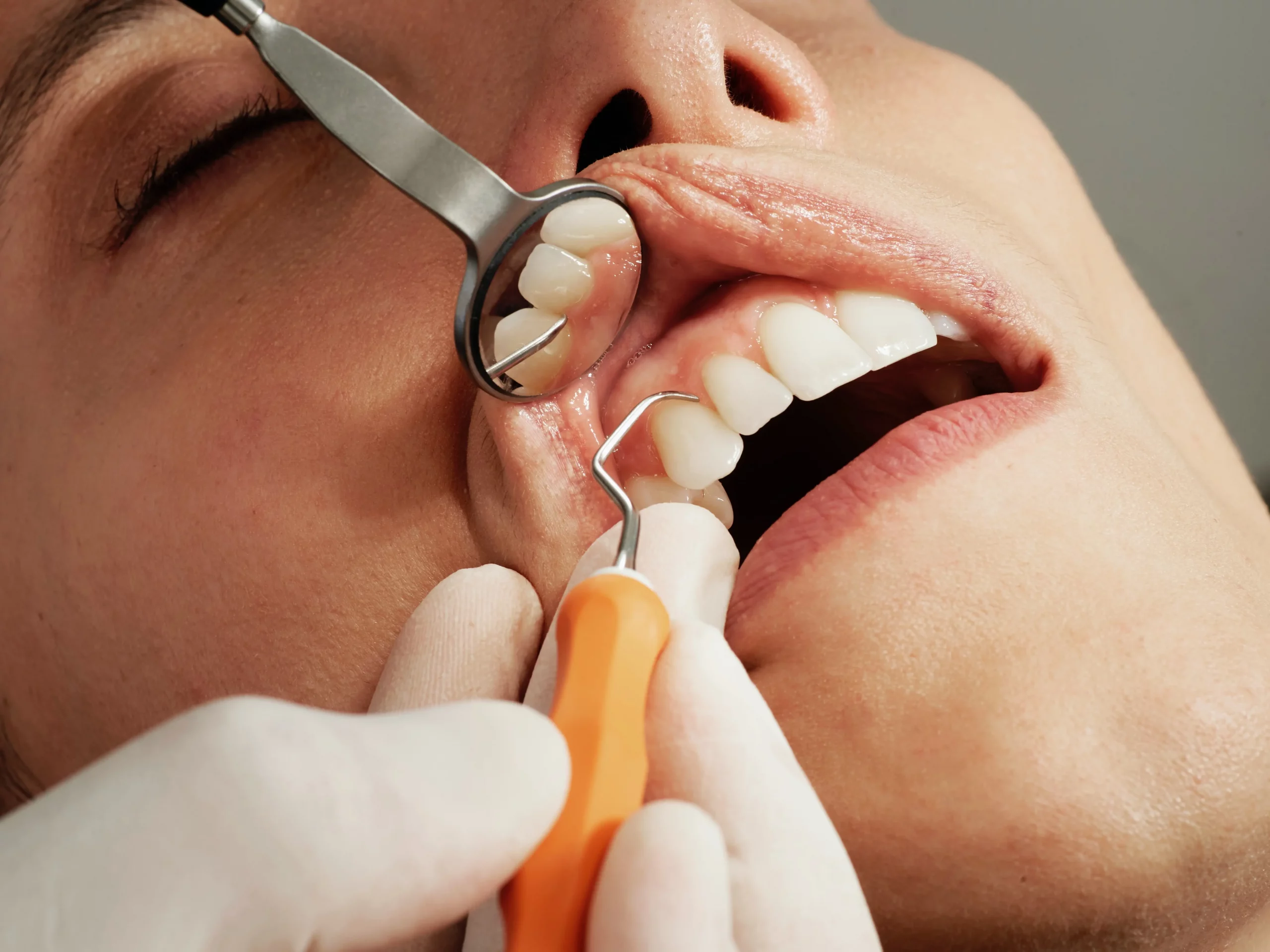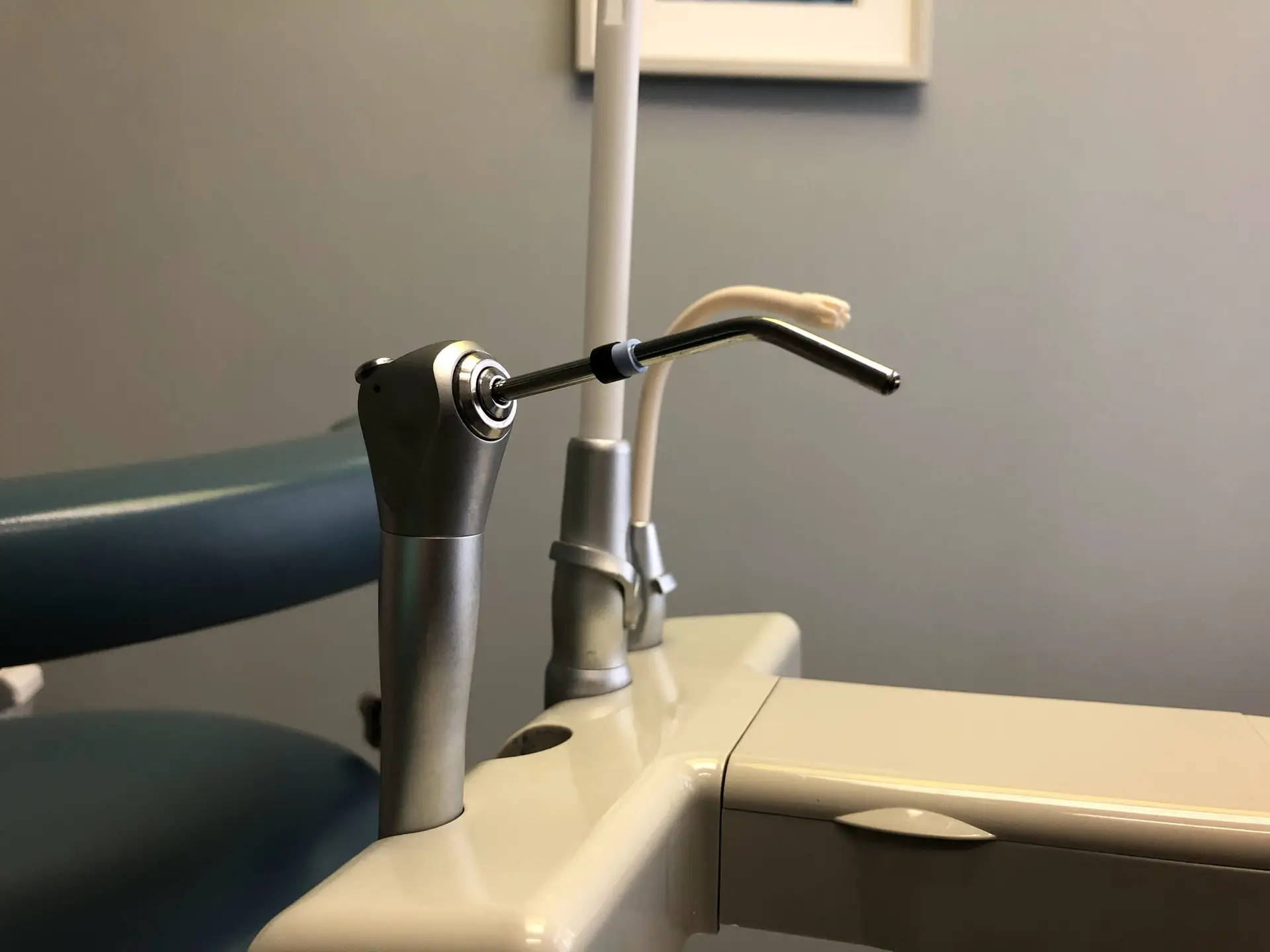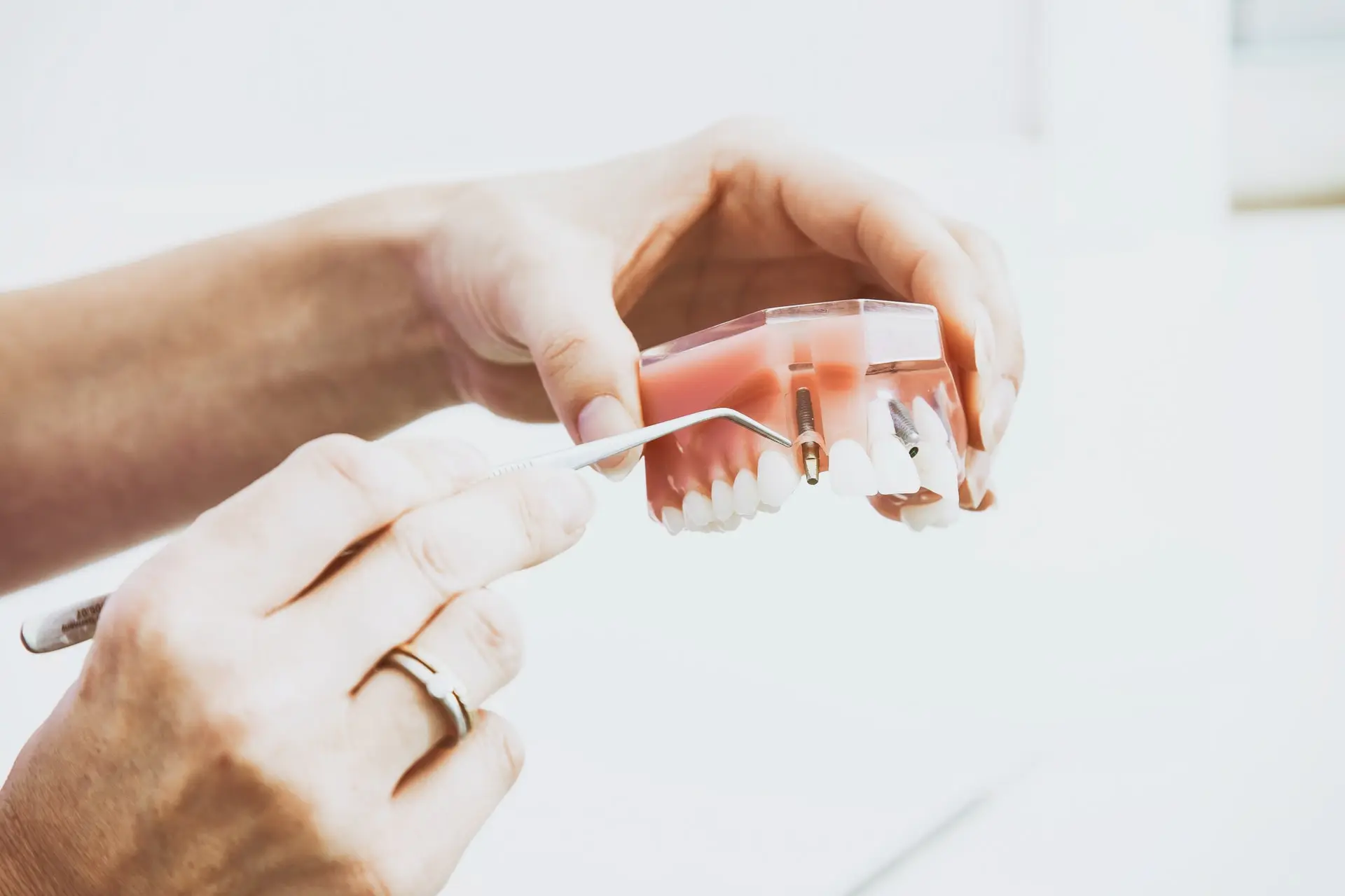Whether you’re looking for comfortable, friendly dentistry service or need help crafting your ideal smile through artisan-crafted veneers, Dr. Konstantine Trichas’ team is the right choice. A top cosmetic dentist in New Jersey, Dr. Trichas utilizes the newest technology to diagnose and treat his patients and has helped hundreds of patients find a more confident smile in his 20+ years of experience. This level of experience paired with our friendly, comfortable atmosphere makes our patients feel right at home, leaving fear of the dentist at the door. Read more about what makes Dr. Trichas’ office one of a kind and book your free consultation today.
Our office specializes in cosmetic and restorative dentistry, helping patients discover their most confident smiles. We offer thorough and experienced restorative services including: dental implants and crowns denture stabilization to make chewing and smiling more comfortable full mouth restoration with dental implants dental bridges to bridge the gap from missing teeth dental bonding for cracked or chipped teeth bone grafting and sinus lifts for patients with jaw bone loss gum reconstruction to repair gum recession. We also offer state-of-the-art cosmetic dentistry to our Basking Ridge patients that include: Invisalign clear braces for patients looking to craft their perfect smile in a low-profile way Orthodontics to correct misalignments of the teeth like crowding and spacing issues Porcelain veneers to cover discolored, chipped, or cracked teeth for a brighter, more confident smile Lastly, Dr. Trichas’s team provides experienced general dentistry services that include: Children’s dentistry in a comfortable, friendly environment Deep cleaning for a brighter smile and better teeth care Laser dentistry to help replace the use of drills for a more comfortable experience Extractions & root canals TMJ treatment
We know that you have a wide selection of dentists to choose from. That’s why we’re dedicated to making your experience with us different. Not only do we make our office as comfortable as possible, but we specialize in emergency care and cosmetic dentistry, offering more than 20 years of experience handcrafting patient smiles. For our patients, their smiles are a large part of feeling confident and because we know that not every dentist can craft the smile you’re looking for, we partner with veneer artisans to make sure your smile is custom fit specifically for you. And, you’ll know you’re in experienced hands with Dr. Trichas. A member of the Fellowship at the Academy of General Dentistry, an honor awarded to only 7% of dentists nationwide, Dr. Trichas finds joy in helping patients feel like themselves again and find restored confidence.
Find your most confident smile today! Contact the experienced and friendly dental team at Dr. Trichas’ office today and book your free consultation.
While we encourage everyone to keep up regular oral and dental care at home and in a dental office, many people still have a need for dentures or prosthetic teeth at some point in their lives. In fact, millions of Americans are missing many of their natural teeth! While veneers can be an excellent solution to replace singular teeth, and ultimately is a great solution for all your teeth, it can also be highly expensive to do that for a full smile. Read more below about why dentures and denture stabilization is a smart, practical choice for replacing missing teeth.
Like previously mentioned, individual veneers and tooth replacements can be expensive when it comes to full or partial replacement of your smile. There are two types of dentures: partial and full. Partial dentures are used when a patient is missing multiple teeth but still have healthy natural teeth as well. Full dentures are used when all natural teeth are missing or decayed and need to be replaced. Many people, concerned with the cost of dental implants, will choose to live with missing teeth, which can cause multiple oral issues that compound their missing teeth. This can include difficulty in eating and speaking, disintegrating facial structure because of the lack of jawline and teeth support, difficulty in cleaning the mouth effectively, and a loss of self-esteem and comfort in social situations.
Dentures, while practical for the replacement of missing teeth, can leave patients uncomfortable or frustrated because they don’t perfectly mirror your natural teeth. They often require multiple fittings to sit comfortably in your mouth and leave many patients feeling frustrated with not being able to eat normally and comfortably because the dentures move and slip in the mouth. When dentures move around, it can injure the gums and cause additional tooth issues and decay when bacteria gets trapped beneath the dentures above the gums. It can also cause mouth sores and irritation. Additionally, dental adhesives can lose adhesion throughout the day and requires multiple applications throughout the day. Paired with the poor taste of the glue, it’s no wonder why many denture patients are looking for a better solution.
Denture stabilization is a wonderful solution for those with full or partial missing smiles because they’re a low-cost, high-functioning alternative. So, how does it work? This method combines dental implants and dentures for a much more secure, affordable solution. The dentist places key dental implants along the jawbone to prevent bone tissue loss, and then places dental over dentures on top for a secure, stable smile.
At Dr. Konstantine Trichas’ office in Basking Ridge, NJ, we’re dedicated to providing exceptional, quality dental care to the surrounding communities. We offer all types of dental and oral care and look to exceed our patient’s expectations in a warm, welcoming environment. We offer three main types of dental care and procedures in our office: general dentistry, restorative dentistry, and cosmetic dentistry. Learn more about each type of dental service we provide below and contact our office for your dental care appointment today.
A crucial part of oral and dental health includes regular teeth cleanings and care. In our office, we offer children’s dentistry with dentists who are trained specifically in pediatric care, deep cleaning and laser dentistry for deep tarter and plaque removal, gum disease treatment, and tooth decay care. We also provide tooth extractions, root canals, and care for temporomandibular joint, or TMJ, issues.
Every person deserves to feel confident in their smile without sacrificing heir oral health. That’s why we provide and specialize in restorative dentistry. Dr. Trichas provides exceptional care with dental implants. Dental implants are artificial tooth roots that bond with the natural jawbone over a period of months and then covered with a dental crown, mirroring the function and look of a
natural tooth. This is a great solution for those who have tooth decay, missing teeth, or other dental health issues. Our office also offers dental bridges to bridge the gap between missing teeth using crowns, bone grafting, and sinus lifts to help patients who have experienced significant bone loss in the upper jaw, dental bonding to repair minor cracks or chips, gum reconstruction for gum recession issues causing pain while eating or drinking, and partial or full dentures for those who are missing teeth. We also offer denture stabilization to help keep dentures firmly in place and give patients back comfort for normal life activities like eating and chewing.
Your smile is a pivotal part of how you present yourself to the world, and we want you to feel confident! We partner with world-renowned ceramist Jason Kim for quality, artisan-crafted veneers and implants to provide excellent cosmetic dentistry for our patients. Our porcelain veneers are used to help cover discolored teeth, gaps between teeth, chips, and cracks. We also offer orthodontics for misalignments of the teeth, crowded teeth, and spacing issues, Invisalign braces for more discreet alignment of the teeth, and professional teeth whitening for a natural, but appealingly whiter smile.
For warm, welcoming, and excellent dental service, Dr. Trichas’ office is the right place for you. We believe that every person deserves to feel confident in their smile and experience excellent oral health too. Contact us today to book your dental care appointment.
If you’re one of the 178+ million adults who are missing teeth, you may be considering dental implants as an option for replacing those teeth. However, it’s important to note that this dental procedure can be expensive. On average, dental implants cost $3,000 to $6,000 and includes the implant/post, the abutment, and the crown. This cost does not include any additional charges such as imaging, extractions, etc.
Therefore, when you make this investment, you’re investing in something that should last for the rest of your life- as long as you take proper care of them.
Again, proper care is important for extending the life of your dental implants. Below, we will offer you 7 aftercare tips to do just that. After all, Dr. Trichas wants you to be able to enjoy your new smile for years to come.

When you come in for dental implant installation, you will be provided with some specific aftercare instructions. In order to ensure that the implants don’t fail, you need to make sure you follow these instructions.
For the first few days, it’s advisable that you limit your diet to soft or liquid foods only. In addition, you need to avoid foods that are really hot and foods that are spicy. You will also be advised to avoid brushing the surgical site. Aftercare instructions also include the following:
If you carefully follow appropriate aftercare instructions, chances of implant failure decreases, and the life expectancy of your dental implants increases.
If you truly want to increase the life expectancy of your dental implants, you’ll quit smoking. Implant failure is rare- but it is much higher in smokers than it is in non-smokers for a variety of reasons:
One of the primary contributors to implant failure is gum disease. Therefore, the best way to protect against this is to brush twice daily. You may believe that since you’re missing your natural teeth, you don’t need to brush. However, this isn’t true. Your dental implants, along with your prosthetic teeth still accumulate bacteria and plaque. This causes bad breath and eventually leads to gum disease if not brushed away.
Make sure that you are still brushing your teeth and cleaning around your implants twice daily. Additionally, continue cleaning your tongue to keep your breath fresh and eliminate bacteria from your mouth.
Chances are, if you’re like most people, you haven’t really given much thought to the way you chew. However, it’s important to understand that it can have a significant impact on the life expectancy of your implants. For example, if you have a habit of biting hard or chewing on crunchy foods or using your teeth as tools, you are putting your implants at risk of failure.
Just like your natural teeth, dental implants can only handle so much wear and tear before they finally give up. Make sure that you are only using your teeth to eat food. Do not use them to open packages, crunch ice, or break hard candy.
Even if you have a mouthful of dental implants, its still advised that you visit the dentist at least once a year, if not every 6 months. You will be advised on the best schedule for you by our team of professionals. These visits allow the dentist to check for and remove any plaque and tartar build-up, as well as to check the health of your implants.
These check-ups allow us to find problems early on so they can be handled before they lead to implant failure. Plus, these visits keep your mouth healthy and clean.
If you drink alcohol, one way to extend the life expectancy of your implants is to enjoy it in moderation. You don’t want to overdo it. After all, alcohol can cause oral cancer and can also dry out your mouth, which leads to gum disease and ultimately, implant failure. So, you can still enjoy a drink every now and then, just not all the time.
When it comes to flossing, you have options. You can use traditional dental floss or you can use a water flosser. A water flosser may be the best option because they are easy and powerful enough to remove bacteria and plaque from areas that are difficult to reach. By using a water flosser, you can prevent gum disease, which increases the life expectancy of your implants.
If you are missing teeth, dental implants are one of the best options. They look, feel, and act like your natural teeth. Of course, they are also one of the most expensive options- so you might want to make sure that you’re taking proper care of them. follow these 7 tips to increase the life expectancy of your dental implants.
Dr. Konstantine Trichas in Basking Ridge, New Jersey specializes in dental implants. If you’re in the area and in need to dental treatment, schedule your consultation today. When you come in, be sure to ask any questions and bring up any concerns that you may have.

A root canal procedure is one which relieves the pain caused by an abscessed tooth or one that has become infected. During the procedure, the inflamed or infected pulp of the tooth is removed. After that, the surfaces inside the tooth get disinfected and a filling is installed, so as to completely seal up that space. If a root canal procedure were not performed, it would probably be necessary to extract the tooth, because it would be lost to infection.

Anytime you feel some kind of intense pain in your tooth while chewing, or if you feel sensitivity to hot and cold, you may have an infected tooth. Once this happens, there are generally only two options, those being a root canal procedure and tooth extraction. The benefit of performing a root canal procedure is that it can save the natural tooth so you won't lose it. When an infection occurs on any given tooth, it destroys nerves and tissues. If this isn't treated promptly, the damage will become so extensive that the tooth will be lost. The root canal procedure will not only alleviate all the pain associated with the infection, but it will completely disinfect the tooth as well. It also prevents the possibility of any tooth in the nearby area becoming infected.

The first thing that happens is that a local anesthetic will be administered to numb the infected tooth and the gums. Then a small rubber dam has to be placed over the area to isolate it and keep it dry. A small opening has to be made in the crown of the tooth so as to access the pulp. Dental instruments will be used to remove the damaged nerves and tissue. After the infected pulp has been removed, the chamber of the pulp as well as the root canals are disinfected and cleaned. The empty canals are then filled with a rubbery material called gutta-percha. Then a temporary crown is used to seal the tooth and prevent the recurrence of bacteria.
The biggest benefit of a root canal procedure is that it saves the natural tooth. It will also prevent any more toothaches in the area that was infected because the infection will have been completely removed. Since the tooth was saved, you also won't have any gaps in your teeth which would have been caused by a tooth extraction. That means the normal configuration of your teeth will be preserved. One possible drawback of root canal procedures is that the tooth can be more vulnerable afterward. It will also be necessary to make several appointments if the damage to a tooth has been severe. There are some complex cases where multiple appointments are necessary as well, but they are necessary to completely remove all infected tissue.
Generally the cost of a root canal procedure will depend on how complex the situation is and which tooth is affected. For a front tooth, you will likely have to pay somewhere between $600 and $1,000, for a premolar it will cost between $700 and $1,300, and for a molar, it will cost somewhere between $900 and $1,500. In most cases, your dental insurance will cover at least half the cost, and possibly as much as 80% of it. This will help to defray part of the overall cost, so you are not obliged to pay as much out-of-pocket.
Avoiding a root canal procedure starts with good oral hygiene, which includes brushing and flossing daily. You may want to avoid hard candies and lollipops, since these can cause cracks in your teeth that allow bacteria to invade. The same thing is true of ice, because it can also cause cracks that give bacteria an opening. If you grind your teeth at night, you should wear a night-guard to protect your teeth from cracks or fractures. If you're involved in contact sports, make sure to have your mouth-guard in at all times to prevent damage. It's also a good idea to avoid acidic drinks like citrus juices and soda. These substances can break down your enamel, and they also provide all kinds of sugar for bacteria to grow on. Make sure to keep all your regular dental appointments, because any cracks or tooth damage can be discovered at these sessions.
The biggest consideration when deciding between a root canal procedure and tooth extract is the fact that a root canal can save the tooth. When the pulp layer of any tooth becomes diseased, the only way to save the tooth is through a root canal procedure. Any decayed or damaged tissue will be removed and the canals will be disinfected. Once the cleansed area has been filled up and sealed, no further bacteria can enter the space and the tooth will be healthy once again. It can then be used as a normal tooth for chewing and biting, with no loss of performance. By having the tooth extracted, you will create a gap in your teeth. Is that gap is not replaced by some kind of bridge or dental implant, it could cause teeth in the area to begin shifting toward the gap. It may also cause a loss of performance in chewing, biting, and speaking. It is a far better option to undergo the root canal procedure and save the tooth, rather than completely losing it and having to undergo some kind of replacement procedure.

When considering a root canal procedure, you should be aware of the associated risks. It's possible for an abscess to form, or there could be an improper sealing which allows bacteria to creep into the infected area again. There could be underfilling or overfilling during the procedure, and either one would leave the tooth vulnerable to a recurrence of infection. It's also possible that a patient might experience some pain in the aftermath of the procedure or some restlessness, although both of these should subside relatively quickly. Keep in mind that if you decide against a root canal, the only real alternative is to have the tooth extracted.